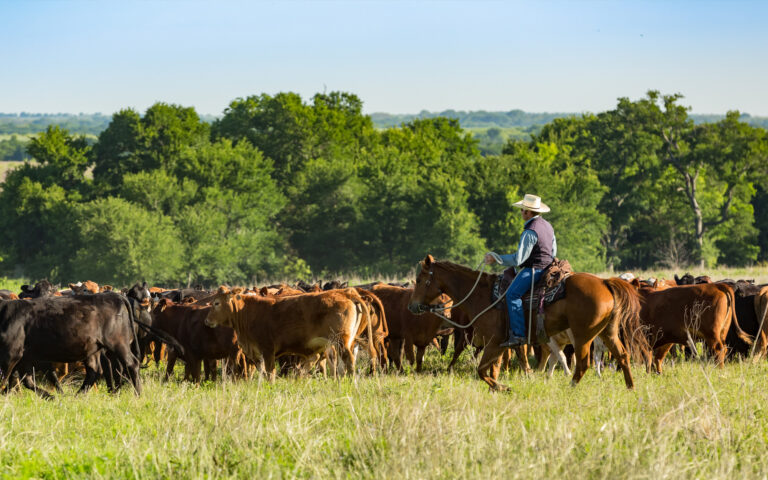When you’re looking to grow or start a business in rural America, financing options can sometimes feel limited. However, USDA business loans are a compelling choice for rural businesses, providing access to much-needed capital at competitive rates. But like any financial support, USDA loans carry their own set of advantages and constraints. Understanding these can help you decide if a USDA loan is the right fit for your business or if you should explore alternatives like SBA loans.
What Are USDA Business Loans?
Before diving into the pros and cons, it’s important to grasp what USDA business loans are and how they work. The USDA offers several loan programs under its Rural Development (RD) division, specifically aimed at bolstering economic development in rural areas. These include:
- Business and Industry (B&I) Loan Guarantees: This program guarantees loans made by lenders to rural businesses, reducing the lender’s risk and encouraging more lending in rural areas.
- Rural Energy for America Program (REAP) Loans: These loans are aimed at businesses looking to make energy-efficient improvements or invest in renewable energy systems.
- Community Facilities Loans: Designed to develop essential community facilities in rural areas, these loans are ideal for non-profit businesses, public bodies, and tribal organizations.
The Pros of USDA Business Loans
USDA business loans offer several key benefits that make them an attractive option for businesses in rural communities. These benefits include favorable terms, increased access to capital, and support for specific types of businesses.
1. Favorable Loan Terms
One of the most significant advantages of USDA business loans is their favorable terms. These loans often come with low interest rates, sometimes lower than what you might find with traditional commercial loans. This is particularly beneficial for businesses operating on tight margins, as it reduces the cost of borrowing.
In addition to low interest rates, USDA loans often have longer repayment terms than other types of business loans. Depending on the specific program, loan terms can extend up to 30 years for real estate and 7 to 15 years for equipment and working capital. Longer repayment periods translate into lower monthly payments, easing the financial burden on your business.
2. Increased Access to Capital
For many businesses in rural areas, access to capital can be a significant challenge. Traditional lenders might be hesitant to extend loans to businesses in these regions due to perceived risks. USDA loans address this issue by offering guarantees to lenders. This guarantee reduces the risk for the lender, making them more likely to approve loans for rural businesses.
This increased access to capital can be a game-changer for businesses looking to expand, purchase equipment, or invest in new projects. It opens up opportunities that might otherwise be unavailable.
3. Support for Specific Types of Businesses
Although USDA programs can be used for almost any type of business, there are programs tailored to specific types of businesses For example, agricultural businesses, renewable energy companies, and community-focused organizations can all benefit from USDA loan programs specifically tailored to their needs.
The REAP loans, for instance, are designed to support businesses looking to invest in energy-efficient technologies or renewable energy projects. This not only helps businesses reduce their energy costs but also aligns with broader sustainability goals.
4. Economic Development in Rural Areas
By supporting businesses in rural areas, USDA loans contribute to broader economic development. When businesses in these areas succeed, they create jobs, stimulate local economies, and provide essential services to rural communities.
The USDA offers a variety of loan programs to support businesses in rural areas and help them thrive! Get a breakdown of the maximum loan amounts you can borrow.
The “Cons” of USDA Business Loans
While USDA business loans offer numerous benefits, they also come with certain drawbacks. Understanding these cons is crucial in determining whether a USDA loan is the right fit for your business.
Geographic Limitations
One of the most significant limitations of USDA business loans is their geographic restrictions. These loans are specifically designed for businesses located in rural areas, which are defined by the USDA as communities with populations of 50,000 or less outside of city limits. If your business is located in a more urban area, you won’t be eligible for a USDA loan.
Even within eligible areas, some businesses may find that the specific location criteria can be restrictive. This limitation means that if your business plans to expand into an area that doesn’t meet the USDA’s rural definition, you’ll need to look for other financing options.
Strict Eligibility Requirements
In addition to geographic limitations, USDA loans have strict eligibility requirements that can be challenging to meet. These requirements vary depending on the specific loan program, but they often include:
- Creditworthiness: While USDA loans are designed to support rural businesses, they still require borrowers to demonstrate good credit. This can be a barrier for businesses with less-than-perfect credit histories.
- Collateral: USDA loans typically require collateral, which can be difficult for some businesses to provide, particularly if they are new or have limited assets.
These strict requirements can make it difficult for some businesses to qualify for USDA loans, particularly those that are just starting out or have faced financial difficulties in the past.
Have further questions? Fill out the form below to contact Ready Capital and discover if your business qualifies for a USDA loan today.
[gravityform id=”4″ title=”false” description=”false”]
Limited Loan Amounts
While USDA loans can provide significant capital, there are limits to how much you can borrow. These limits vary depending on the specific loan program, but they can be a drawback for businesses with large-scale funding needs.
Ready Capital can work with you on identifying additional funding sources such as PACE, additional USDA programs or Tax Credits for projects over $25MM.
When to Consider SBA Loans as an Alternative
Given the pros and cons of USDA business loans, it’s clear that while they offer many benefits, they aren’t the right fit for every business. If your business doesn’t meet the geographic or eligibility requirements for a USDA loan, an SBA loan may be a better option.
The Small Business Administration (SBA) offers a variety of loan programs that can serve as an excellent alternative to USDA loans. These include:
- 7(a) Loan Program: The SBA’s flagship loan program offers flexible terms and can be used for a wide range of business purposes, including working capital, equipment purchases, and real estate.
- 504 Loan Program: This program provides long-term, fixed-rate financing for major fixed assets, such as land, buildings, and equipment.
- Microloan Program: Ideal for smaller loan amounts, the SBA Microloan program provides loans of up to $50,000 for working capital or inventory.
Advantages of SBA Loans
SBA loans come with their own set of advantages, including:
- Broader Eligibility: Unlike USDA loans, SBA loans are available to businesses in both rural and urban areas, providing more flexibility in terms of location.
- Faster Approval: While SBA loans also involve a rigorous application process, they are generally faster than USDA loans, making them a better option for businesses that need quick access to funds.
The Bottom Line: Choosing the Right Loan for Your Business
Deciding between a USDA business loan and an SBA loan ultimately depends on your business’s specific needs and circumstances. If your business is located in a rural area and meets the eligibility requirements, a USDA loan can offer favorable terms and increased access to capital. However, if you need more flexibility, faster approval, or if your business is located in an urban area, an SBA loan might be the better choice.
In any case, it’s essential to carefully evaluate all your options and consider consulting with a financial advisor or lender who can help you navigate the application process and choose the loan that best suits your business’s needs. By making an informed decision, you can secure the financing you need to grow and succeed in today’s competitive business environment.





